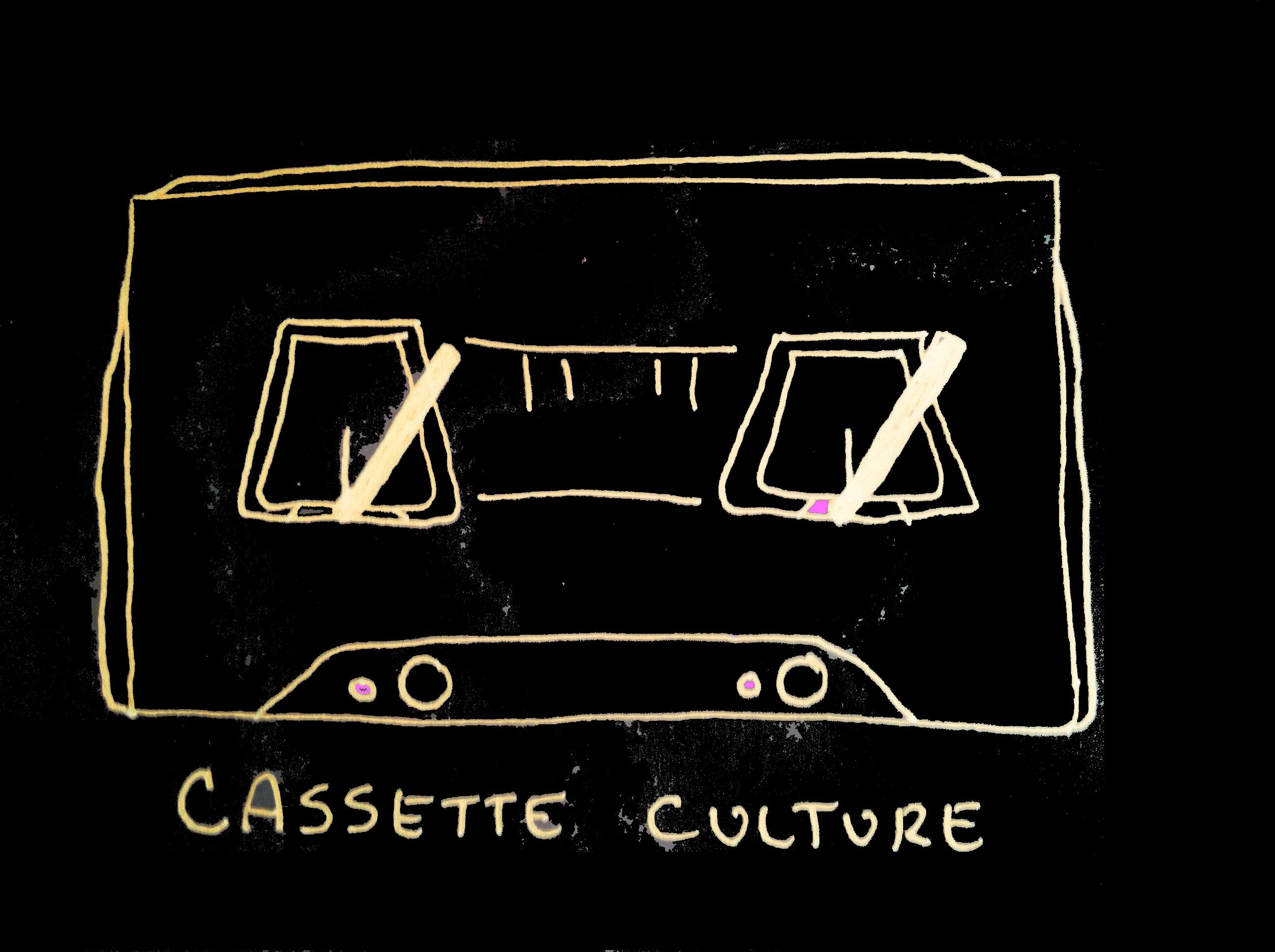Cassette Culture is a monthly column dedicated to exploring the various artists that inhabit the expansive cassette market. Drawing from bands and labels around the world, this column will attempt to highlight some of the best artists and albums from this global community.
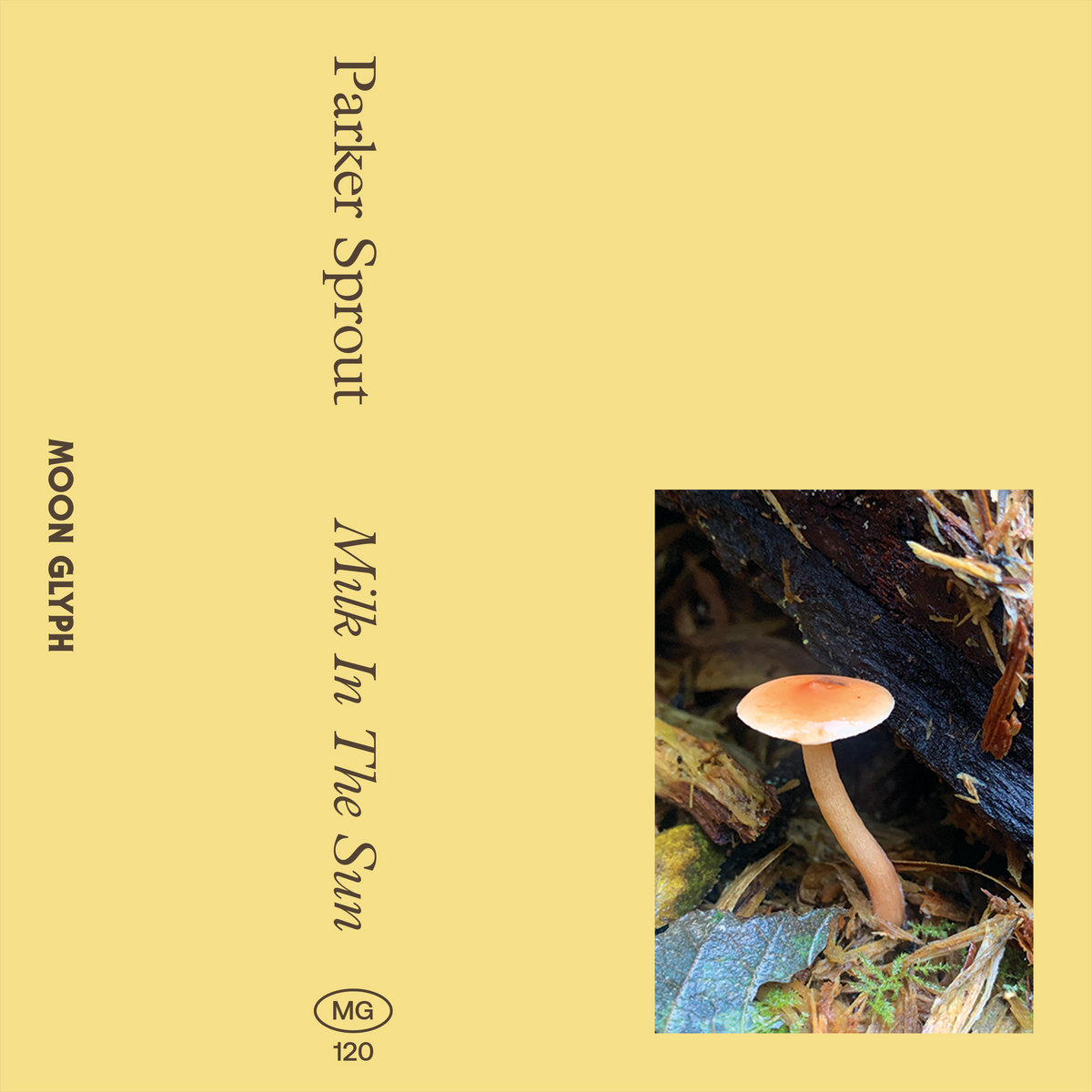 Parker Sprout
Parker Sprout
Milk In the Sun
(Moon Glyph)
As the first artist signed to Portland-based cassette imprint Moon Glyph back in 2009 (recording as Velvet Davenport), pop architect Parker Sprout has a long history churning out catchy pop collages, turning our expectations inside out and crafting engaging songs that seem beamed in from some alternate musical timeline. With Milk in the Sun, he’s found room to expand his pop impulses to venture into more experimental histories, finding ways to combine ear-tugging melodies with psychedelic flourishes and slightly noisy rhythms. There’s still plenty of jangle to hang your hat on, but he approaches these shivering sounds in a more ramshackle way, allowing their innate looseness to guide each track to some end that isn’t clear at its onset. The songs swing from radio-friendly pop anthems to electronic divergences that sound rough and burnished in the blink of an eye – the record is masterful at bridging the divide between these extremes, digging into what he sees as the commonalities between these different sounds. Milk in the Sun is a collection of miniature wonders that sparkle and hiss in the low light of Sprout’s limitless imagination.
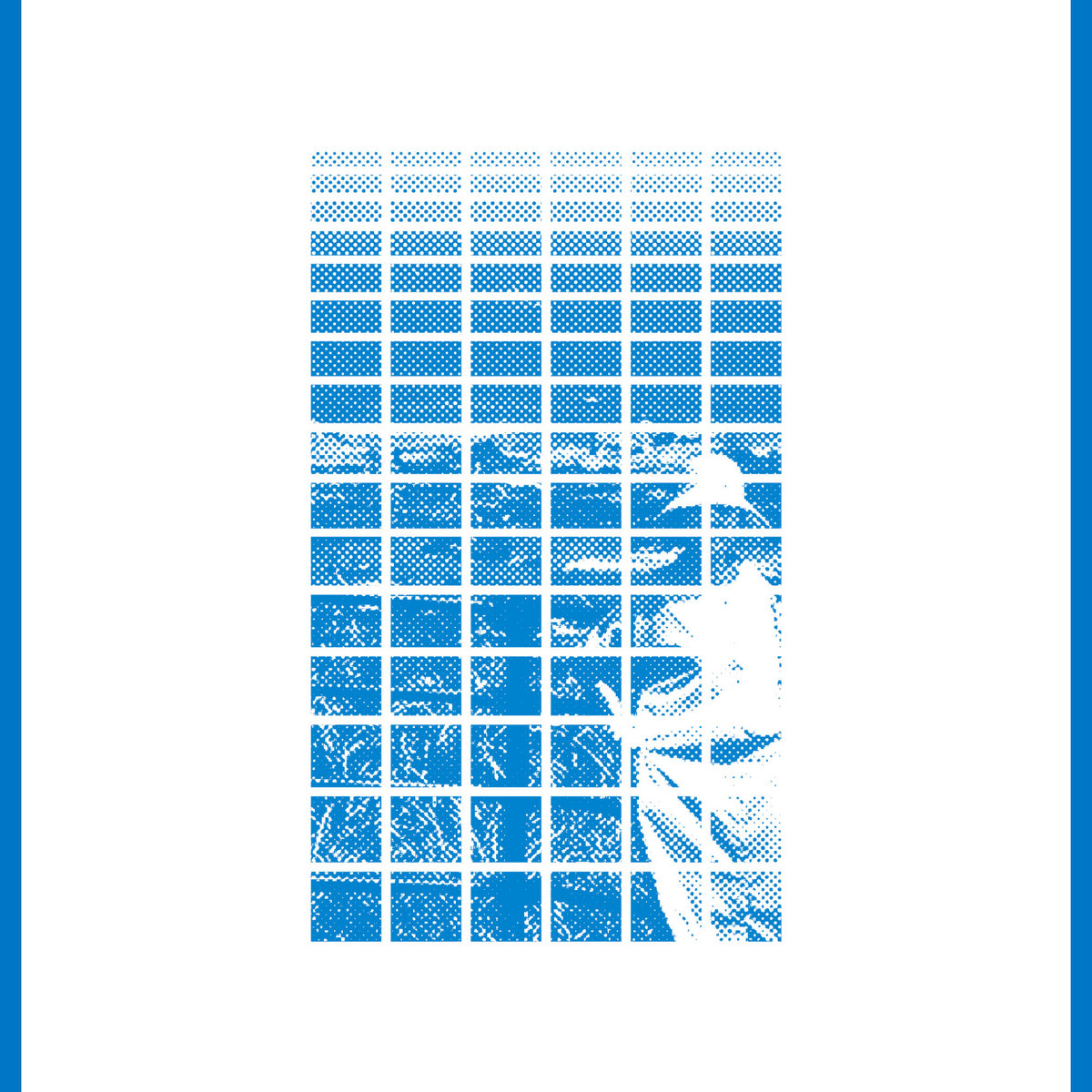 Soshi Takeda
Soshi Takeda
Same Place, Another Time
(Constellation Tatsu)
Tokyo producer Soshi Takeda attempts to define an intangible nostalgia on Same Place, Another Time, a new collection of meditative ambient experiences for Constellation Tatsu. Reshaping the ideas behind deep house, he searches for ways to channel the feeling of looking at places that have been lost to time. Gentle melodies and shifting arpeggios work their way through these six tracks, softly resolving their individual narratives in ways that plead for impressionistic responses from their audience. There’s no concrete way to amble through these sounds; you can only wander, a bit aimlessly, until some small detail catches your attention, giving you direction and purpose in relating how the song applies to your own understanding of what is going no around you. There’s an odd playfulness at work here, as well, a sense that Takeda isn’t necessarily obsessing over the loss of certain geographies so much as he is paying homage to the wonders that were and might have been. Loss and the joy of remembrance collide in fascinating ways across Same Place, Another Time and give us an opportunity to fall into a blissful meditation on the underlying structures of the world and the position we occupy within it.
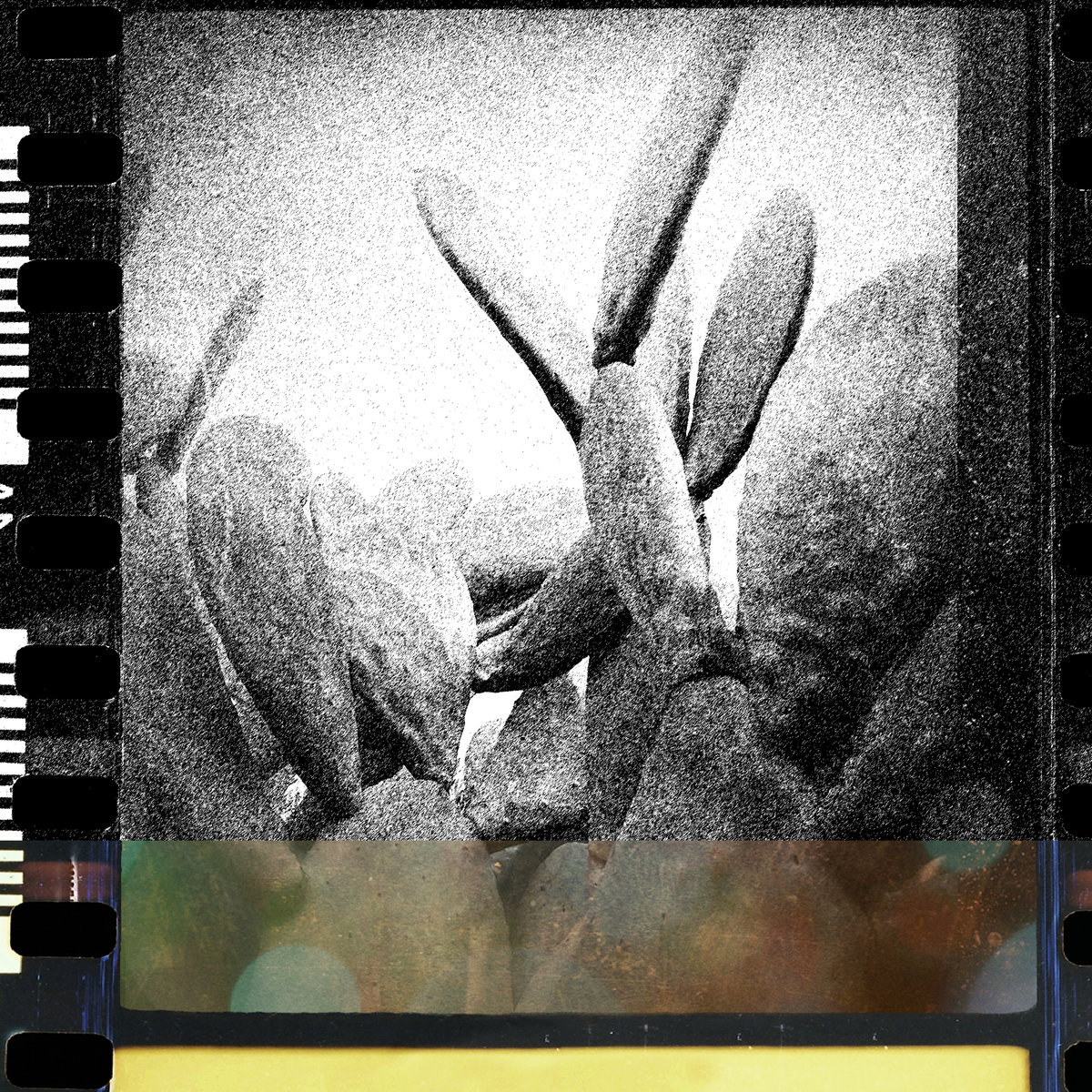 Il Santo Bevitore
Il Santo Bevitore
Water and Tears
(Opal Tapes)
Recording under the guise of Il Santo Bevitore, London-based multi-instrumentalist Nicola Serra turns his eye for electronic alchemy toward his home country of Sardinia. On Water and Tears, he brings together clusters of looping rhythms and masses of disquieting noises, creating a patchwork of memories and impressions held for years as he looks back on his time growing up. Often industrial in composition, these tracks are broken up and segmented by beautiful and caustic atmospherics and Serra’s penchant for discordant loveliness. Dipping below the event horizon of these songs, you fill the unending pull of time as images begin to whir past you, building a history both familiar and alien – one that seems tied to some universal sentiment while also being irrevocably personal. Screams punctuate the ambient sonics while static-flecked broadcasts beam in from planets beyond our galaxy. There is no rest here, only the constant stream of nostalgia, anxiety, and the ever-present passing of time. Waves of darkness and the subsequent lightness in its passing provide a shifting landscape where the boundaries of his creativity are obliterated and left in pieces for his listeners to find.
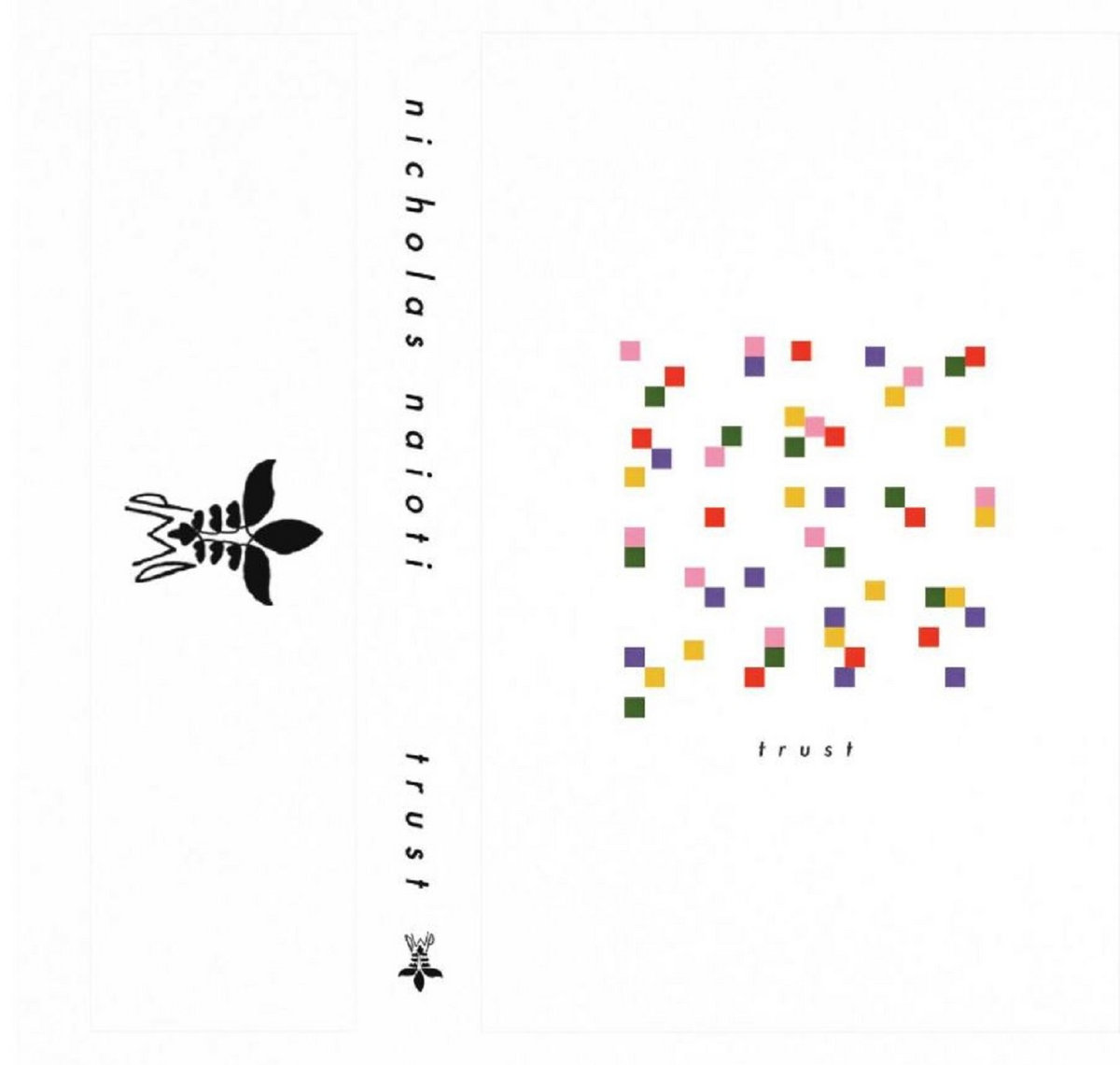 Nicholas Naioti
Nicholas Naioti
Trust
(Diamond Wave Press)
The wind kicks up around your feet and the voices begin to rise as you fall into the lovely world of Nicholas Naioti’s Trust, a 5-track EP that showcases his abilities as a songwriter implicitly attuned to the ordinary wonders that happen as we struggle to find our way through this saturated world of love, ache, and the search for personal identity. Aided in his pursuit of meaning by subtly crafted countrified psychedelics and folk authenticity, he longs for a time when experience can be the answer to all of our questions. We just need to live and have that life stand as the foundation on which we base our decisions, the good and the bad. These songs plead for simplicity through exquisite arrangements that highlight our need for resolution, even when that comes with its own dark disclosures. Drawing from a well of familiar genres, he turns them inward, focusing on how best to tangle their roots and emerge with a sound wrestled free from its influences. Trust is vivid and immersive and plays to the craggier recesses of our hearts – it’s a jewel and a moment when determination and resolve collide in spectacular fashion.
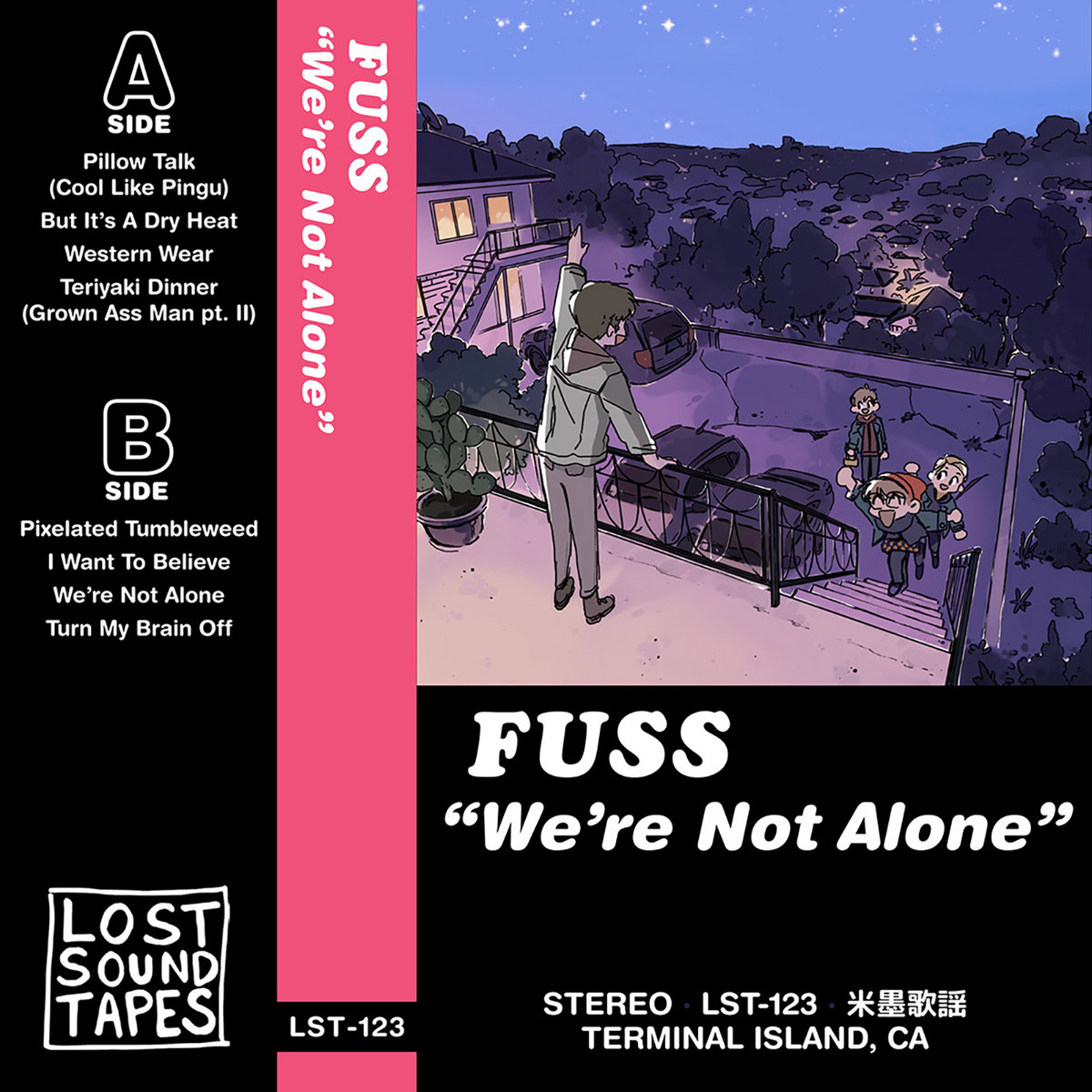 Fuss
Fuss
We’re Not Alone
(Lost Sound Tapes)
Fuss is a pop-punk/emo trio consisting of Joyce Manor’s Chase Knobbe and Nick Aguilar and Shinobu’s Bob Vielma, and their new Jeff Rosenstock-produced record We’re Not Alone is a riotous collection of surging catharses and tidal guitar anthems. It should come as no surprise to fans of either Joyce Manor or Shinobu that Fuss continues to dig into a vein of emotionally resonant rock while bringing in other less conspicuous influences. Fuss ties in aspects of J-Pop, disco, and post-punk to great effect, confirming their ability to balance vast reserves of inspiration without the music sounding burdened by its origins. The band’s heart-on-sleeve aesthetic allows them to project an honest need to understand how they fit into this world. The millennial experience has rarely been so fully realized without an ounce of affectation as it is here. The world may be in tatters at the moment, but Fuss are more interested in what could be and how they can help get us there. We’re Not Alone is an ode to unfathomable possibilities and the intense desire to find the common motives and meanings that should drive us to build up rather than tear down.

